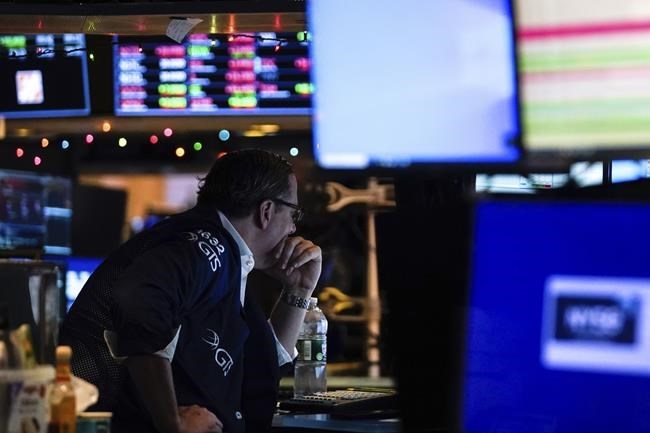BANGKOK (AP) — Asian shares skidded Thursday after a retreat on Wall Street as markets registered their dismay over the Federal Reserve’s warning that still higher interest rates are in store following its latest increase.
Oil prices fell while U.S. futures edged higher.
Japan reported its trade deficit in November surged to over 2 trillion yen ($15 billion) as higher costs for oil and a weak yen combined to push imports higher. It was the 16th straight month of red ink and a record high for the month of November.
Tokyo's Nikkei 225 lost 0.3% to 28,058.42 and the Hang Seng in Hong Kong sank 1.1% to 19,449.15. The Kospi in Seoul gave up 1.1% to 2,372.78.
The Shanghai Composite index fell 0.3% to 3,167.73 and Australia's S&P/ASX 200 shed 0.6% to 7,208.80.
Shares fell in Taiwan and Bangkok but rose in Mumbai.
As expected, the central bank by 0.50 percentage points on Wednesday. It was its seventh hike this year. The Fed also said it expects rates to be higher over the coming few years than it had anticipated.
Recent signs that inflation has eased had stoked optimism that the Fed might signal the possibility of rate cuts in the second half of next year. But during a press conference, Fed Chair Jerome Powell emphasized that the full effects of the central bank’s efforts to slow the economy to bring down inflation have yet to be fully felt.
“The Fed did not welcome the disinflation trends that have just started to emerge and focused on robust job gains and elevated inflation. Any hopes of a soft landing disappeared as the Fed seems like they are committed to taking rates much higher," Edward Moya of Oanda said in a commentary.
The S&P 500 lost 0.6% to 3,995.32, giving up an earlier gain of 0.9%. The Dow Jones Industrial Average fell 0.4% to 33,966.35, and the Nasdaq composite gave back 0.8%, closing at 11,170.89.
Roughly 70% of the stocks in the S&P 500 closed lower Wednesday, with technology companies, banks and retailers among the biggest weights on the benchmark index. Apple fell 1.6%, Goldman Sachs dropped 2.3% and Best Buy slid 3.9%.
Small company stocks also fell. The Russell 2000 index slid 0.7% to 1,820.45.
The Fed's latest hike is smaller than the previous four 0.75 percentage point increases and comes a day after an encouraging report showed that slowed in November for a fifth straight month, to 7.1%.
Powell said the Fed plans to hold rates at a level high enough to slow the economy “for some time” to ensure inflation really is crushed. He said the Fed’s projections released Wednesday do not include any for rate cuts in 2023.
“The inflation data received so far for October and November show a welcome reduction in the monthly pace of price increases, but it will take substantially more evidence to give confidence that inflation is on a sustained downward path,” Powell said.
“I wouldn’t see the committee cutting rates until we’re confident that inflation is moving down in a sustained way,” Powell said.
The latest increase brings the Fed's federal funds rate to a range of 4.25% to 4.5%, its highest level in 15 years. Fed policymakers forecast that the central bank's rate will reach a range of 5% to 5.25% by the end of 2023. That suggests the Fed is prepared to raise rates by an additional 0.75 percentage points next year.
The Fed also signaled it expects its rate will come down by the end of 2024 to 4.1%, and drop to 3.1% at the end of 2025.
Consumer spending and employment remain strong. That has made it more difficult for the Fed to tame inflation while also helping to protect the slowing economy from a possible recession.
The U.S. will release its weekly report on unemployment benefits on Thursday, along with retail sales data for November.
In other trading Thursday, U.S. benchmark crude gave up 73 cents to $76.55 per barrel in electronic trading on the New York Mercantile Exchange. It gained $1.89 to $77.28 a barrel on Wednesday.
Brent crude shed 64 cents to $82.06 per barrel.
The U.S. dollar rose to 135.62 Japanese yen from 135.46 yen. The euro fell to $1.0652 from $1.0682.
Elaine Kurtenbach, The Associated Press



